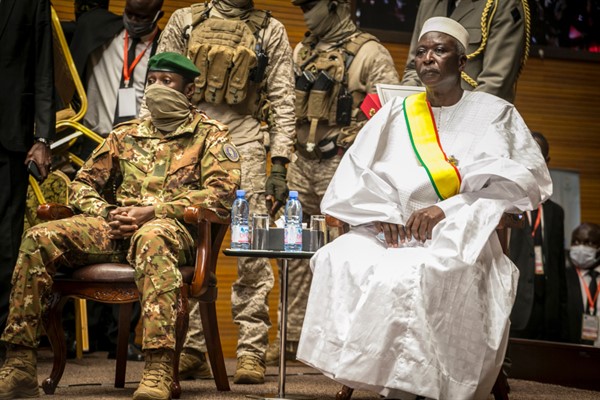With rising communal and interethnic violence gripping swaths of the country, two coups in less than a year and a deadlocked transition to civilian rule, Mali is arguably facing its most uncertain moment since the 1991 March Revolution, which paved the way for the country’s return to civilian government nearly 30 years ago. Throw in a peace accord with northern insurgent groups on life support, a drawdown of Operation Barkhane—France’s massive counterinsurgency mission across the Sahel—and a rumored deal to deploy Russian private military contractors from the Wagner Group to the country, and it’s fair to say Mali’s immediate and long-term future are at stake.
The ramifications of instability in Mali do not stop at the country’s borders, not least because of its size and strategic positioning. The violence in Mali, which broke out nine years ago in the country’s north and has continued for nearly a decade, has since spread to central Mali as well as into Niger and Burkina Faso, costing thousands of civilian lives every year. Terrorist attacks are occurring closer to Bamako, Mali’s capital, with increasing frequency. And across the region, the Sahel is experiencing its worst spate of violence since the fighting began, with more than 6,500 people killed in Mali, Niger and Burkina Faso in 2020 alone, as well as a worsening humanitarian crisis driven in large part by the conflict. Clearly, the two coups staged in Bamako since August 2020 have done little to stem the tide of violence and instability, and arguably have worsened the Malian state’s ability to grapple with its myriad challenges.
“There is no improvement in terms of security, quite the contrary,” Boubacar Haidara, a lecturer at the University of Segou in Mali and an associate researcher at Sciences Po Bordeaux, told me. To underscore his point, Haidara pointed to a phenomenon occurring with increasing frequency since the two coups: the cordoning off of entire villages by jihadist groups. “These communities can remain blockaded for months without the security forces attempting to liberate them,” he added.

